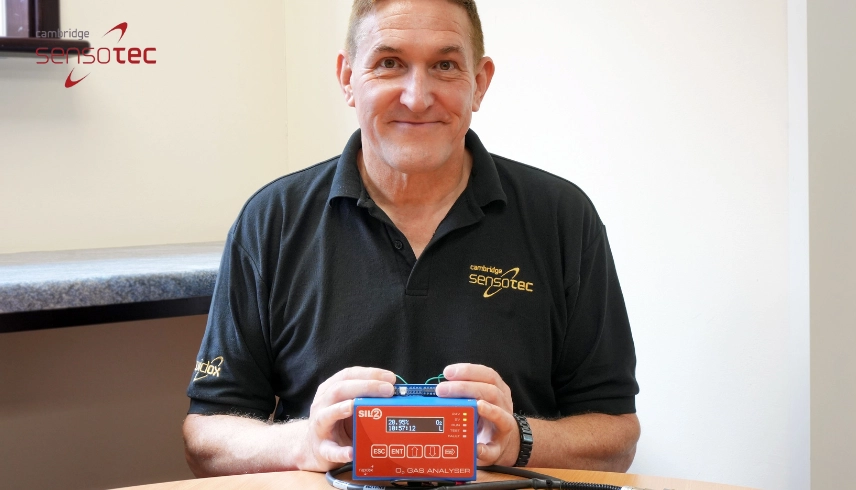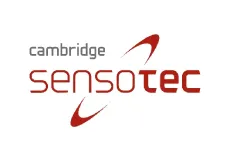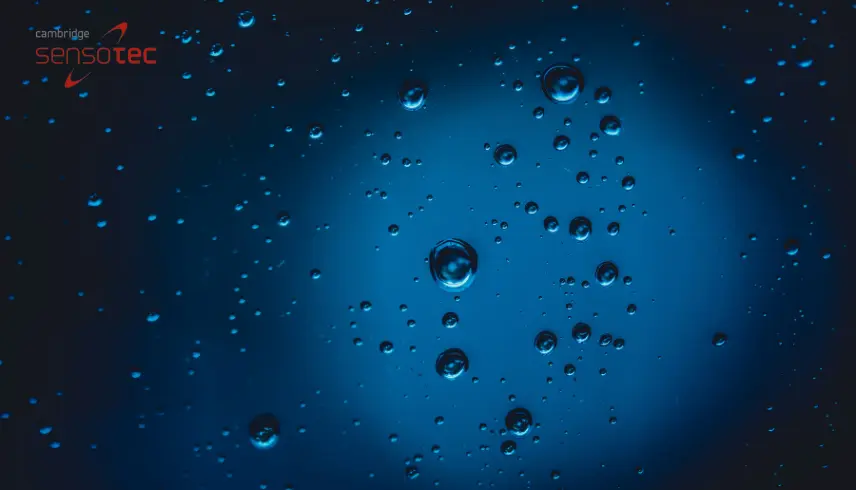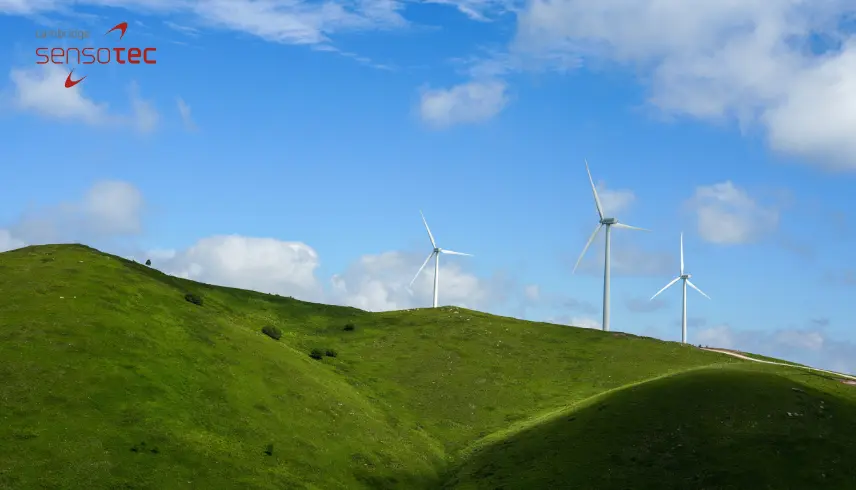

Innovations in Hydrogen Analysis: The R3100 and R1100 Explained
Introduction
As hydrogen continues to emerge as a key energy source for a sustainable future, the need for accurate and reliable hydrogen analysis has never been greater. From fuel cells to industrial applications, ensuring hydrogen purity is critical for efficiency, safety, and regulatory compliance.
Cambridge Sensotec, a leader in gas analysis technology, offers cutting-edge solutions with the Rapidox R3100 and R1100 Hydrogen Analysers, designed to meet the evolving needs of the industry.
This article explores the importance of hydrogen analysis, the challenges associated with accurate measurement, and how the R3100 and R1100 analysers are setting new standards for precision, reliability, and ease of use.
The Critical Role of Hydrogen Analysis in Industry
Why Hydrogen Purity Matters
Hydrogen is widely used across multiple industries, and its purity directly affects the performance, safety, and efficiency of various processes. Even minor impurities can lead to inefficiencies, increased operational costs, and compromised safety.
Key Applications Requiring Accurate Hydrogen Measurement
- Fuel Cells and Renewable Energy
- Hydrogen fuel cells rely on ultra-pure hydrogen to function efficiently. Impurities such as oxygen, nitrogen, and carbon dioxide can degrade fuel cell performance and lifespan.
- Semiconductor Manufacturing
- Hydrogen is used in semiconductor fabrication for processes such as silicon wafer production and annealing. Any contamination can affect the integrity of semiconductor components.
- Industrial Heat Treatment
- Many metal processing and heat treatment applications use hydrogen as a reducing gas. Precise measurement is essential to maintain process consistency and product quality.
- Aerospace and Automotive Applications
- Hydrogen-powered vehicles and aerospace applications require meticulous monitoring of gas composition to ensure performance and safety.
Regulatory and Safety Standards in Hydrogen Handling
Governments and regulatory bodies worldwide have implemented strict standards for hydrogen purity in various industries. Adhering to these standards is crucial for ensuring safe operations, reducing environmental impact, and maintaining product efficiency.
The Challenges of Hydrogen Gas Analysis
Hydrogen is a crucial gas in multiple industrial applications, including renewable energy, fuel cells, aerospace, and pharmaceuticals. However, its lightweight nature, high diffusivity, and small molecular size make accurate measurement particularly difficult. Ensuring precise hydrogen analysis requires cutting-edge sensor technology, robust gas-handling methodologies, and an understanding of environmental factors that can affect readings.
This section explores the key challenges of hydrogen gas analysis and how Cambridge Sensotec’s R3100 and R1100 Hydrogen Analysers overcome these obstacles.
Hydrogen’s Unique Properties and Their Measurement Challenges
Hydrogen is the lightest element in the periodic table, making it highly volatile and prone to rapid dispersion in the air. Additionally, it exhibits low viscosity and high diffusivity, meaning it can easily escape through the tiniest of leaks, even in well-sealed systems.
Beyond its physical properties, hydrogen also interacts with other gases, which can complicate measurement if sensors are not designed to compensate for cross-sensitivity. Furthermore, environmental factors such as temperature fluctuations and pressure variations can lead to inconsistent readings if not properly accounted for in the measurement process.
Common Challenges in Hydrogen Detection and Analysis
1. Leakage Risk & Gas Containment Challenges
- Hydrogen’s tiny molecular structure makes it highly permeable, meaning it can pass through materials that would typically contain heavier gases like oxygen or nitrogen.
- Leaks can pose serious safety hazards, particularly in enclosed spaces where hydrogen can accumulate and create an explosion risk.
- High-purity hydrogen applications, such as fuel cell technology, require leak-tight containment to prevent contamination and ensure consistent performance.
Solution with Cambridge Sensotec’s R3100 and R1100:
- The R3100 and R1100 analysers are equipped with advanced detection technology that can identify even the smallest traces of hydrogen leakage.
- Their high-sensitivity sensors provide real-time monitoring, ensuring leaks are detected before they become hazardous.
- Continuous gas sampling helps in early leak detection, preventing potential safety incidents.
2. Cross-Sensitivity with Other Gases
- Many conventional gas analysers struggle to differentiate between hydrogen and other gases such as oxygen, nitrogen, and carbon dioxide.
- Impurities in hydrogen streams—such as moisture, hydrocarbons, and inert gases—can skew measurement accuracy, leading to incorrect purity readings.
- In mixed-gas environments, traditional sensors may misinterpret gas compositions, affecting process control in industries such as semiconductor manufacturing and heat treatment.
Solution with Cambridge Sensotec’s R3100 and R1100:
- The R3100 Hydrogen Analyser uses Thermal Conductivity Detection (TCD) technology, allowing precise differentiation between hydrogen and other gases.
- The R1100 Hydrogen Analyser utilises Electrochemical (EC) sensors, which are specifically designed to measure hydrogen concentrations accurately while filtering out interferences from surrounding gases.
- Advanced background gas correction technology ensures highly accurate readings even in mixed gas environments.
3. Sensitivity to Environmental Conditions
- Temperature and pressure variations can significantly alter gas behaviour, leading to inaccurate readings.
- Fluctuating humidity levels can introduce condensation, affecting sensor performance.
- High-precision applications, such as hydrogen fuel production and aerospace applications, require analysers that can compensate for environmental factors to ensure consistent results.
Solution with Cambridge Sensotec’s R3100 and R1100:
- Both analysers feature built-in temperature compensation, ensuring stable readings even under fluctuating environmental conditions.
- R3100’s high-precision thermal conductivity sensor adapts to varying temperatures and pressures, minimising drift and improving accuracy.
- The R1100’s electrochemical technology is engineered to perform reliably in harsh industrial environments, preventing deviations caused by humidity or temperature shifts.
4. Ensuring Hydrogen Purity for Industrial Applications
- Many industries require high-purity hydrogen (99.99% and above) for critical processes. Even small contaminants can impact fuel efficiency, semiconductor manufacturing, or chemical processing.
- Traditional methods of hydrogen analysis can be time-consuming and require manual adjustments, leading to inefficiencies in industrial production lines.
Solution with Cambridge Sensotec’s R3100 and R1100:
- The R3100 Hydrogen Analyser provides high-accuracy measurements in real-time, ensuring purity levels remain within industry specifications.
- The R1100’s fast response time allows for immediate detection of impurities, ensuring continuous quality control in production environments.
- Multi-gas analysis capabilities help industries monitor hydrogen alongside other gases, providing a comprehensive gas analysis solution.
Introducing the R3100 and R1100: Precision Hydrogen Analysis Solutions
Cambridge Sensotec’s Rapidox R3100 and R1100 hydrogen analysers are designed to provide accurate, real-time monitoring of hydrogen gas across a range of industries.
Key Features and Technical Specifications
- Advanced Sensor Technology: Utilises Thermal Conductivity (TCD) and Electrochemical (EC) sensors for superior accuracy.
- Real-Time Monitoring: Continuously tracks gas composition, enabling rapid adjustments and enhanced process control.
- Customisable Solutions: Configurable for a variety of industrial applications, ensuring maximum flexibility.
- Data Logging & Connectivity: Seamless integration with industrial systems via RS232, RS485, and Modbus RTU/Ethernet for remote monitoring.
The R3100 Hydrogen Analyser: Advanced Performance for Demanding Applications
Designed for Industrial and Research Environments
The Rapidox R3100 is built for high-precision hydrogen purity measurement, offering unparalleled accuracy and reliability for industrial use.
Key Benefits of the R3100
- Advanced Thermal Conductivity Sensor:
- Provides real-time, high-sensitivity hydrogen measurement with background gas correction.
- Flexible Sampling Methods:
- Offers both continuous and fixed sampling modes to suit different operational requirements.
- Digital Connectivity:
- Enables remote monitoring and automated alerts, ensuring proactive maintenance.
- Multi-Gas Capability:
- Can be customised to measure additional gases if needed, providing a comprehensive analysis solution.
The R1100 Hydrogen Analyser: Compact, Efficient, and Reliable
For applications that require a lightweight, portable hydrogen analysis solution, the Rapidox R1100 is an ideal choice.
Key Features and Advantages
- Electrochemical Sensing Technology:
- Offers fast and precise hydrogen detection with high stability.
- User-Friendly Interface:
- Equipped with a 7” full-colour touchscreen for easy operation and real-time display of readings.
- Compact and Versatile:
- Ideal for laboratory and on-site hydrogen monitoring.
- Cost-Effective Solution:
- Provides high accuracy without the need for expensive maintenance.
Applications of the R3100 and R1100 Across Industries
Hydrogen Fuel Cell Development
The R3100 and R1100 analysers help maintain hydrogen purity, extending fuel cell lifespan and ensuring optimal energy efficiency.
Industrial Manufacturing
Hydrogen is used in annealing, brazing, and welding applications. Precise monitoring prevents impurities that could affect material properties.
Medical and Laboratory Use
Laboratories require high-purity hydrogen for analytical applications such as gas chromatography. The R3100 and R1100 provide accurate gas composition analysis.
Environmental and Renewable Energy Sectors
With the rise of green hydrogen production, these analysers ensure that hydrogen purity meets industry standards for clean energy solutions.
The Future of Hydrogen Analysis and Cambridge Sensotec’s Role
Growing Demand for Hydrogen as a Clean Energy Source
As industries shift towards hydrogen-based energy solutions, the demand for precise gas analysis will continue to grow. Cambridge Sensotec is committed to developing next-generation gas monitoring solutions that align with global sustainability goals.
Continuous Innovation in Gas Analysis Technology
The R3100 and R1100 are just the beginning. Cambridge Sensotec is actively investing in new sensor technologies, AI-driven data analysis, and enhanced automation features to further advance the field of hydrogen analysis.
Conclusion: Why Choose the R3100 and R1100 for Hydrogen Analysis?
Ensuring hydrogen purity is critical for industries relying on high-efficiency, clean energy solutions. Cambridge Sensotec’s R3100 and R1100 hydrogen analysers offer unmatched precision, reliability, and ease of use, making them the ideal choice for industrial and laboratory applications.
Key Takeaways:
- ✅ Accurate and real-time hydrogen measurement with advanced sensor technology.
- ✅ Customisable solutions for a variety of industrial and research applications.
- ✅ Seamless integration with digital monitoring systems for enhanced process control.
- ✅ Future-proof technology designed to meet evolving hydrogen analysis needs.
If your business requires high-precision hydrogen analysis, contact Cambridge Sensotec today to learn how the R3100 and R1100 can enhance your operations.


